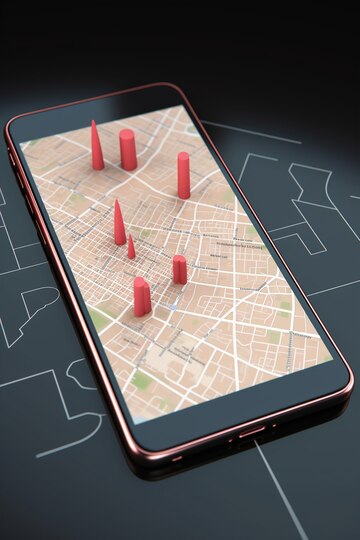How accurately does the app determine users' current locations?




Factors Affecting Location Accuracy
The accuracy of a tracking app in determining a user's location can vary based on several factors:
- GPS Signal Strength: GPS signals can be weakened or blocked by physical obstructions such as buildings, trees, and even weather conditions. In open areas with a clear view of the sky, GPS can typically provide location accuracy within 5 to 10 meters. However, in urban canyons or indoors, accuracy can degrade significantly.
- Network Connectivity: When GPS signals are weak or unavailable, tracking apps may rely on Wi-Fi and cellular networks to estimate location. Wi-Fi positioning uses the proximity of known Wi-Fi networks to triangulate a device's location, while cellular triangulation estimates location based on the distance from nearby cell towers. These methods are less precise than GPS but can still provide accuracy within 20 to 50 meters.
- Environmental Conditions: Dense urban areas with tall buildings, known as urban canyons, can reflect GPS signals, leading to inaccuracies. Similarly, weather conditions such as heavy rain or snow can affect signal quality. Indoors, thick walls and ceilings can obstruct signals, making it difficult to pinpoint the exact location.
- Device Hardware: The quality and capabilities of the GPS chip in a smartphone or tracking device can also influence accuracy. Newer devices typically have more advanced GPS chips that offer better precision.
How Modern Tracking Apps Enhance Location Accuracy
To overcome the limitations of GPS and improve location accuracy, modern tracking apps use a combination of technologies:
- Hybrid Positioning Systems: Many tracking apps use a hybrid approach, combining GPS, Wi-Fi, and cellular data to provide the most accurate location possible. This approach allows the app to switch between different methods depending on signal availability and environmental conditions.
- Assisted GPS (A-GPS): A-GPS enhances the performance of standard GPS by using data from cellular networks to quickly acquire satellite signals and improve accuracy in areas with poor satellite visibility.
- Wi-Fi and Bluetooth Positioning: In indoor environments where GPS signals are weak, apps can use Wi-Fi and Bluetooth beacons to estimate location. This method is commonly used in shopping malls, airports, and other large indoor spaces.
- Sensor Fusion: Some apps use sensor fusion, combining data from the device's accelerometer, gyroscope, and magnetometer to improve location estimates, especially when the user is on the move.
By leveraging these technologies, tracking apps can provide users with highly accurate location data, even in challenging environments. However, it's important to note that no system is perfect, and there may still be occasional inaccuracies.

Real-World Accuracy: What Users Can Expect
In real-world scenarios, the accuracy of tracking apps can vary widely depending on the environment and the user's device. Under ideal conditions, such as in open outdoor areas with a strong GPS signal, users can expect location accuracy within 5 to 10 meters. In more challenging environments, such as dense urban areas or indoors, accuracy may decrease to 20 to 50 meters or more.
Despite these potential variances, modern tracking apps are still highly effective tools for finding family and friends. For example, if a user needs to locate a family member in a crowded urban area, the app can provide a general location that is accurate enough to make a phone call directly to check in or meet up.
Quality of Our
Works
Duis orci nisl, ornare non diam id, dapibus faucibus urna. Vestibulum tristique posuere iaculis. Suspendisse orci tortor, auctor non luctus sed, vulputate sit amet libero. Maecenas congue fringilla justo molestie dapibus. Cras quis erat in velit rhoncus mollis. Phasellus eu enim dignissim an
What to Look For
When choosing a tracking app to find your family and friends, it's important to consider several factors that can influence the app's performance and accuracy:
- Technology and Features: Look for apps that use a combination of GPS, Wi-Fi, and cellular data for location tracking. Apps that offer hybrid positioning or A-GPS are more likely to provide accurate results.
- User Reviews and Ratings: Check user reviews and ratings to get a sense of how well the app performs in real-world situations. Look for comments on accuracy, reliability, and ease of use.
- Privacy and Security: Ensure that the app has strong privacy and security features to protect your location data. Look for apps that offer end-to-end encryption and allow you to control who can access your location information.

Have a Questions?
If you have not found the answer to your question, please feel free to contact us.
We will be happy to help you.




Lets try Findee
for Free
Download our latest version and please don’t
forget to rate :)

Subscribe Newsletter
Subscribe to the newsletter to be the first to receive interesting news




